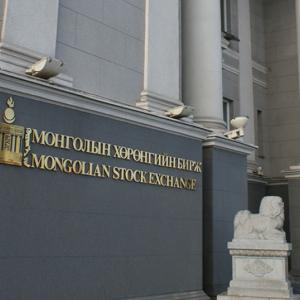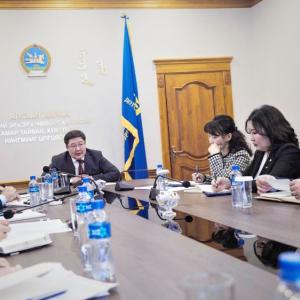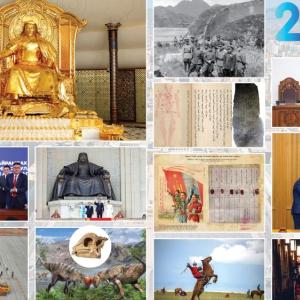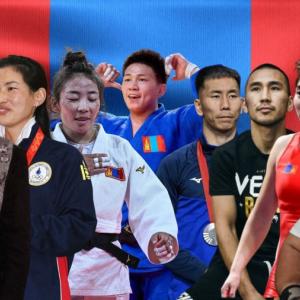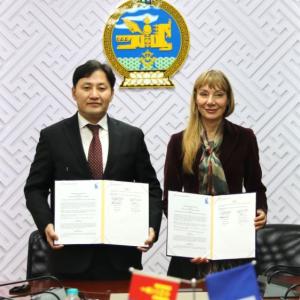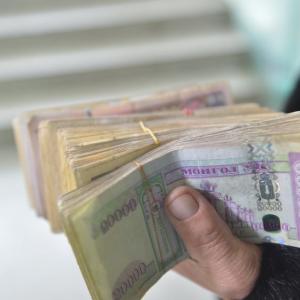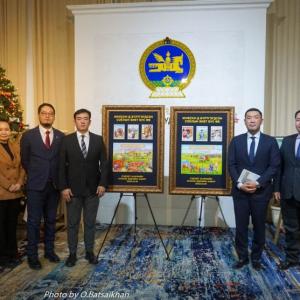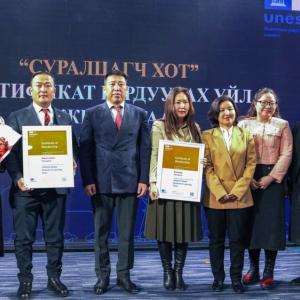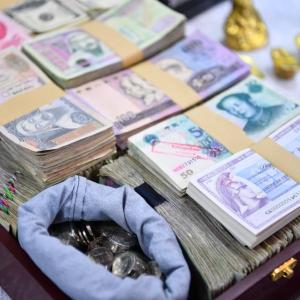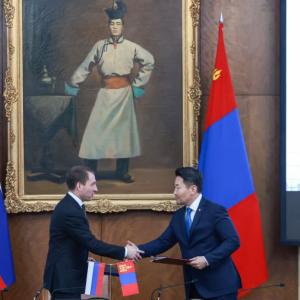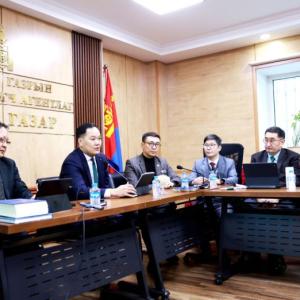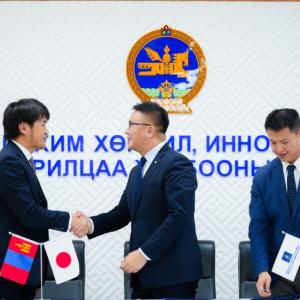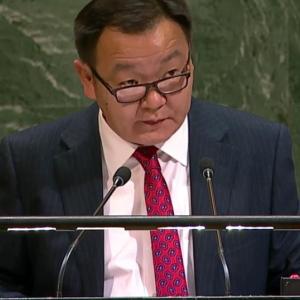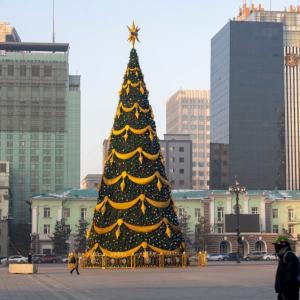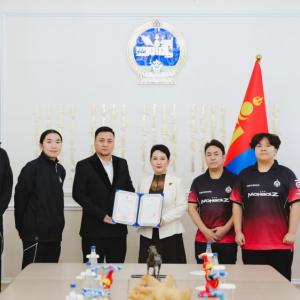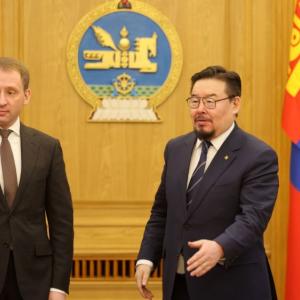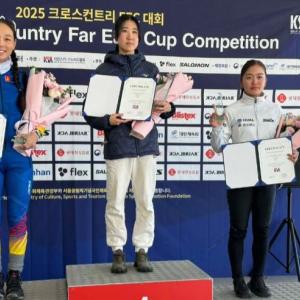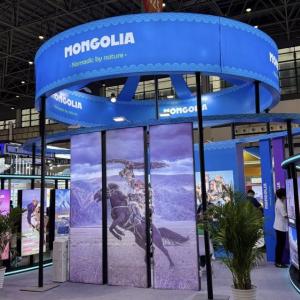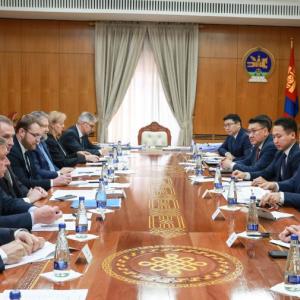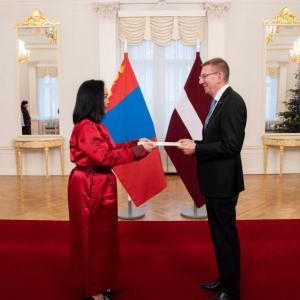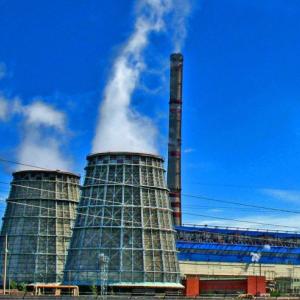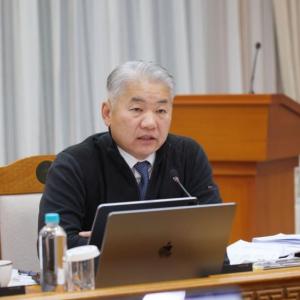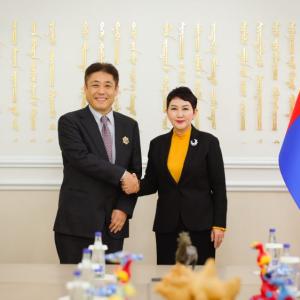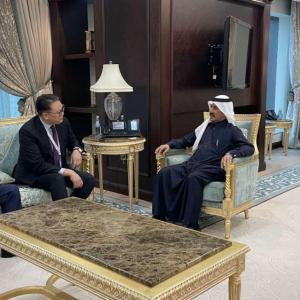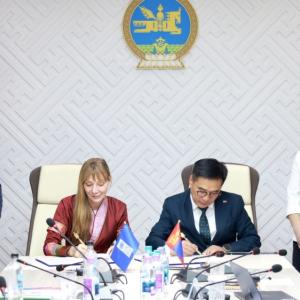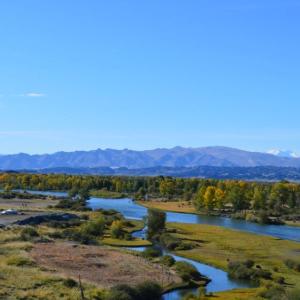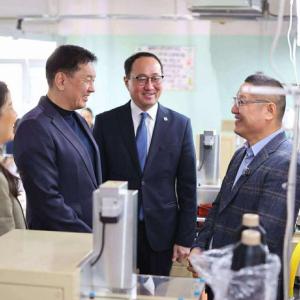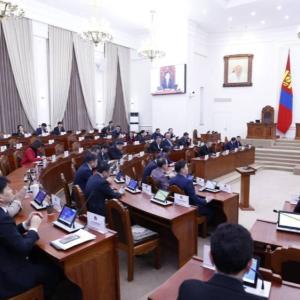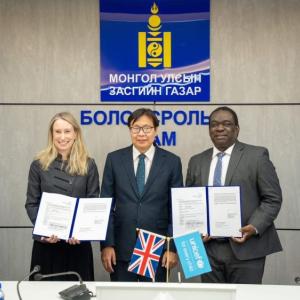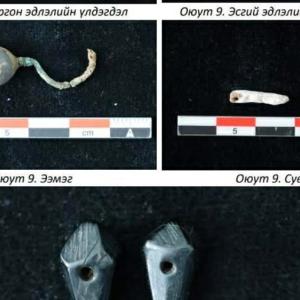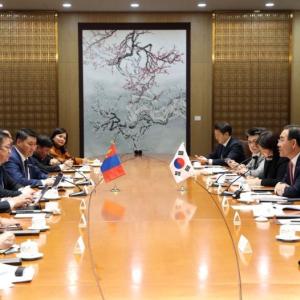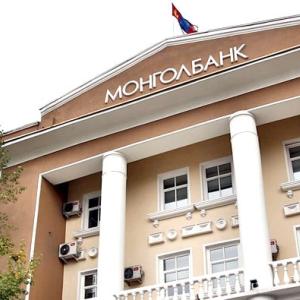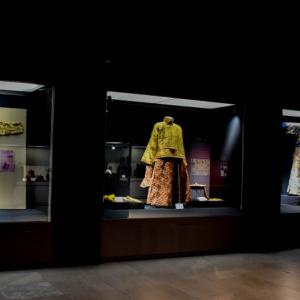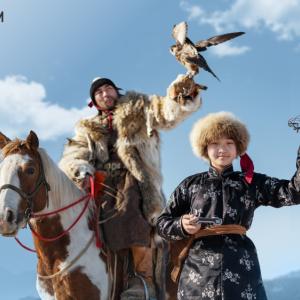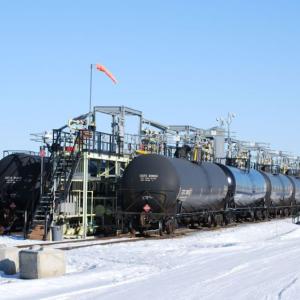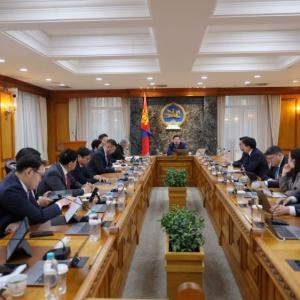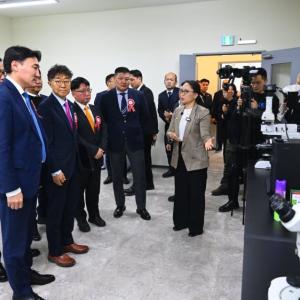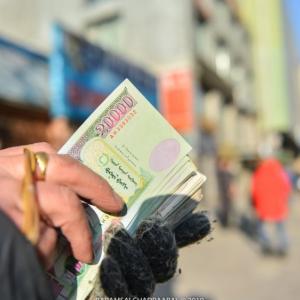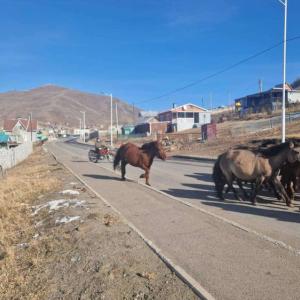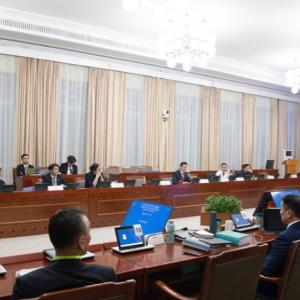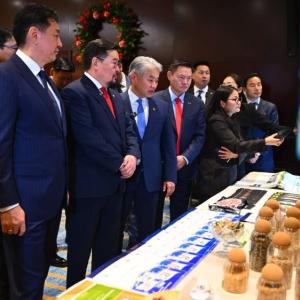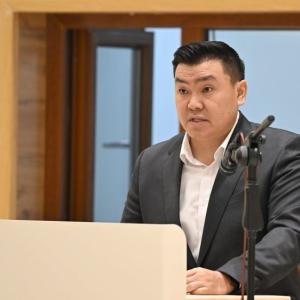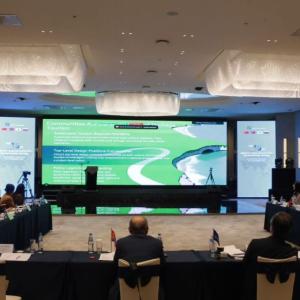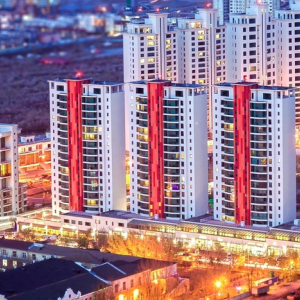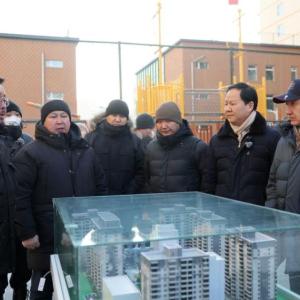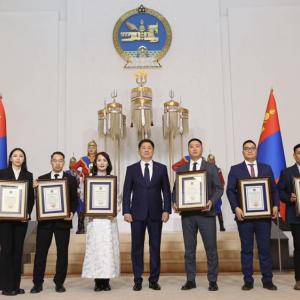David Sproule: Mongolia is a gem that is yet to be fully explored
The Mongol Messenger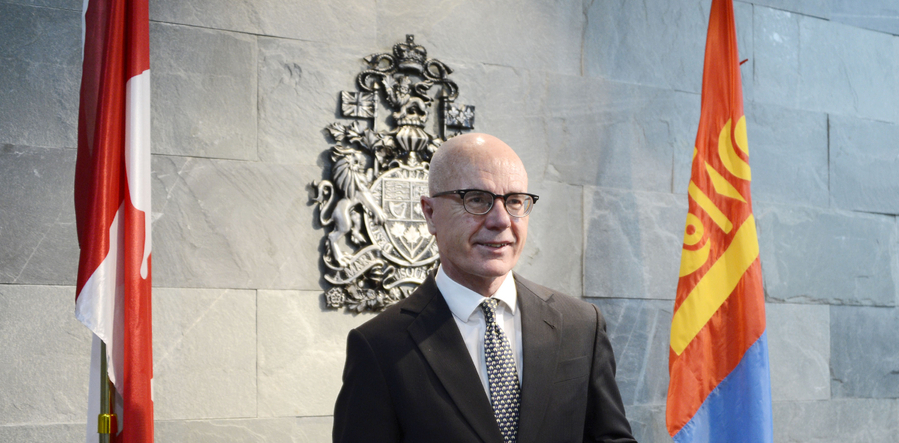
Canadian Ambassador discusses bilateral relations on 45th anniversary
“Coming to Mongolia felt like going home,” said David Sproule, Ambassador of Canada to Mongolia, as he recalled his arrival in Mongolia in September, 2017. He sat with the Mongol Messenger on a spring morning to discuss Mongolia-Canada relations, which turn 45 this year. “I was raised in a province in Canada, which has a very similar climate as Mongolia. We have long winters, very warm summers and a dry climate. If I may say, my province and Mongolia also have very similar geographic characteristics – wide grazing land on which we mostly have farms, taiga, woodlands and mountains, as well as demographic similarity in the form of a small population,” he added.
Ambassador Sproule has previously led Canadian diplomatic missions in Bangladesh, Afghanistan, Thailand, Norway and Libya. Thus, he compared Mongolia with his previous postings saying, “Two of my previous postings were in conflict zones, and Mongolia has no conflict. So, there is a bit of a difference in terms of what I focus my efforts on. I think it is an exciting time to be in Mongolia, a country that is actively taking on democracy and market economy, which are still relatively new. I have never been in a country as new to market economy as Mongolia is. Mongolia has gone through some challenges, but it is well on its way after so many decades of planned economy. Mongolia is also making significant progress in terms of democratic development, looking at how vibrant and competitive the politics are in this country. It is an opportunity for me and my Embassy to watch those developments as they happen, and it is pretty special.”
“Coming to Mongolia felt like going home,” said David Sproule, Ambassador of Canada to Mongolia, as he recalled his arrival in Mongolia in September, 2017. He sat with the Mongol Messenger on a spring morning to discuss Mongolia-Canada relations, which turn 45 this year. “I was raised in a province in Canada, which has a very similar climate as Mongolia. We have long winters, very warm summers and a dry climate. If I may say, my province and Mongolia also have very similar geographic characteristics – wide grazing land on which we mostly have farms, taiga, woodlands and mountains, as well as demographic similarity in the form of a small population,” he added.
Ambassador Sproule has previously led Canadian diplomatic missions in Bangladesh, Afghanistan, Thailand, Norway and Libya. Thus, he compared Mongolia with his previous postings saying, “Two of my previous postings were in conflict zones, and Mongolia has no conflict. So, there is a bit of a difference in terms of what I focus my efforts on. I think it is an exciting time to be in Mongolia, a country that is actively taking on democracy and market economy, which are still relatively new. I have never been in a country as new to market economy as Mongolia is. Mongolia has gone through some challenges, but it is well on its way after so many decades of planned economy. Mongolia is also making significant progress in terms of democratic development, looking at how vibrant and competitive the politics are in this country. It is an opportunity for me and my Embassy to watch those developments as they happen, and it is pretty special.”
“I was fascinated by Mongolia’s history”
Before we dived into bilateral relations, I asked him about what he had known about Mongolia before he arrived and was impressed by how much insight he had into our history. The Ambassador remembers, “My knowledge of Mongolia was historical. I had studied about Chinggis Khaan and his conquests as he went westward and the ongoing influence and legacy of his presence. I knew a little bit about the interaction and relations between Mongolia and China historically, which is very interesting. I was also very fascinated by Mongolia’s history in the last couple centuries, about the issues of Inner and Outer Mongolia, how that came about and the ongoing influence of China and Mongolia’s concern about domination by any one country. I am also aware that Mongolia was once very much inside the Soviet Union’s orbit. With all that represented in terms of the way the economy and the political system developed, Mongolia suddenly decided to go another direction in 1990. It is fascinating history.”
Since his pre-arrival knowledge was more than moderate, I sought to know his opinion of Chinggis Khaan, who played an extraordinary role in the making of Mongolia and also a considerable part in the shaping of the modern world. It turns out the Ambassador’s historical knowledge was based on personal research, complemented by the general knowledge provided by school. “I am interested in anybody who is historically that powerful and accomplishes that much,” the Ambassador explained the reason he did a personal research on Mongolia. Then he came to Mongolia to find out what Mongolians think about him. “Mongolians see him as a great hero, courageous warrior and leader who put Mongolia’s interests first and expanded its influence, both culturally and politically. His influence lasted many centuries.”
When you know as much about a country as Ambassador Sproule did, expectations will arise before you actually set foot and breathe the air of the country. The Ambassador establishes that almost all of his first impressions were more positive than his expectations. “The people were friendlier, they liked Canada even more than I thought they would, it is easier to do business here, access to the government and business leaders is good, the capital city is dynamic, and Mongolia is very welcoming. Yet you can suddenly leave the city and witness an unbelievable outback with pasture lands and nomads who have lived the same way for centuries, which is quite fascinating. It has been a very pleasant experience for all my senses. Mongolia is a gem which a lot of people and Canadians haven’t yet discovered. I am very grateful to be seeing what it has to offer.”
However, the Ambassador didn’t expect one aspect of life in Ulaanbaatar to be so challenging which is the winter air pollution. “It was a big surprise. I didn’t realize that pollution was as pronounced as it is,” he said.
As Mongolia and Canada commemorate the 45th anniversary of diplomatic relations, which were established on November 30, 1973, Ambassador Sproule is optimistic about the dynamic relationship the two countries share. “Canada is the largest foreign investor in Mongolia in terms of bilateral commercial relations. Canada has a large presence in the country, and there are a lot of opportunities for Canadian investors.” Mongolia and Canada are good development partners with programming in development valued around CAD 8-10 million per year. The total value of Canada’s bilateral programming is now CAD 40 million. As for people-to-people relations, there are nearly 700 Canadians residing in Mongolia. As of the end of 2016, there were close to 5,300 Mongolians residing in Canada and approximately 200 Mongolian students in Canada.
At this stage of bilateral cooperation, the Canadian Ambassador pursues several priorities. For instance, Canada is focusing on development programs with emphasis on gender equality and women’s empowerment in Mongolia. Canada will continue to have a strong presence in terms of helping Mongolia combat corruption and advance, regulate and oversee its natural resource industry. On the business side, the Embassy would like to see more Canadian companies investing and trading in Mongolia, which is not only good for Canadians, but also Mongolians, according to the Ambassador.
“Mongolian women have natural inclination to lead”
When asked how Canada’s Feminist International Assistance Policy finds reflection in Mongolia, the Ambassador highlights the many opportunities to help elevate the status and role of women in Mongolia. “We are working towards the development of a justice system more responsive to the needs of women, particularly as women are so often victims of domestic violence. We are also committed to increasing opportunities for young Mongolian women to succeed in the economy.” For example, the Embassy organized leadership training for 21 young women representing each province in Ulaanbaatar.
The Embassy is also working on a civil service reform project in partnership with the United Nations Development Programme. “Canada has a long-standing and strong tradition of a professional public service. We hope that we can help Mongolia provide public service with lasting standards in terms of professionalism, know-how, incentives and opportunities for civil servants. Women will be an important component in the project.”
Ambassador Sproule believes that gender equality is quite advanced in Mongolia based on his observation. “I see how the number of women in leading positions in companies and the government and taking leadership roles in the country is increasing,” he noted. A good example is the fact that a greater number of women were elected to the Mongolian Parliament during the 2016 General Elections, compared to the previous elections. Canada helped provide guidance and assistance to women who wished to run for Parliament in 2016.
“We are seeing a lot of progress, but that is not to say that there aren’t areas that we couldn’t use improvement. Mongolia needs its talented women to take on leadership roles because they have something unique and important to offer. If Canada can help improve those opportunities, it is good for the whole of Mongolia.”
The Ambassador observes that Mongolian women are very confident. “They have a natural inclination to lead, and that’s a very good opportunity for Mongolia. I think the society is increasingly recognizing the importance of utilizing women. In other words, the men realize that it is in their interest to make sure women play a large role in the society and the economy.” He stressed the importance of utilizing women and girls saying, “I don’t profess to know a lot about women, but what I do think I know is that women are probably the world’s most under-exploited resource. The world needs women to take up more leadership opportunities because they represent more than half the population.”

“Mongolia needs to consult with foreign investors”
Last month, Ambassador Sproule attended the 2018 Prospectors & Developers Association of Canada (PDAC) and a Mongolia-themed forum held in conjunction with the international event in Toronto. The Ambassador says he was overall surprised by how very large the PDAC is, which attracted 2,500 delegates attending from 125 countries, and hundreds and hundreds of company booths, two of which were Mongolian. The Mongolia Forum attracted close to 200 attendees from Canada, Mongolia and other countries, which is a record attendance.
“It struck me that Mongolia had made a strong impression that day. From Mongolia’s point of view, I think it reinforces that there is a huge competition in the resource industry for financing and raising of capital. The Toronto Stock Exchange is the largest place to raise financing, therefore is a good reason to have PDAC there. Mongolian and other companies wishing to do business in Mongolia are trying to show why investing in Mongolia is a good thing. As the Mongolian Minister of Mining and Heavy Industry did say, it is an important forum to demonstrate why Mongolia is an attractive place to do business.”
The Ambassador agrees that there are huge opportunities in Mongolia. “Mongolia has been richly endowed with natural resources. It obviously is an asset many countries don’t have.” Asked to share his opinion on how Mongolia can better utilize these resources, the Ambassador said, “From my experience in terms of investment and natural resources gathered in other countries, I will say that governments have to be very careful that they don’t stifle incentives for people who undertake risks. Particularly in Mongolia, it is the companies that are doing explorations. If explorations stop, projects will stop, limiting employment opportunities and furthermore the opportunity to obtain tax revenue. So, you have to be in a position where you provide the very latest and the best environment in terms of tax regime, incentives and the attractiveness of investing. That’s something Mongolia is always trying to improve. They can do so, but they also need to consult with the people they want to attract.”
Canada, for its part, has been actively helping Mongolia develop a system to regulate and oversee its resources industry so it maximizes benefits to Mongolians, protect the environment and is effective in terms of bringing back returns to Mongolians. “I think that’s all possible, and we are making progress in this area.” The Embassy has a very active cooperation with Mongolian ministries such as the Ministry of Environment and Tourism and the Ministry of Mining and Heavy Industry.
“Canada and Mongolia are natural partners”
The Embassy has also been actively working with the journalistic community of Mongolia. Last year, the Embassy sponsored an award for journalists in cooperation with the Baldorj Foundation, which had special focus on coverage of women’s issues. The Embassy also helped send a Mongolian journalist to South Africa for investigative journalism training. “We are looking at other opportunities and may find some programming to help provide training for Mongolian journalists this year, which we see as something special in our 45th year.”
The Ambassador illustrates the idea behind the focus on Mongolian media saying, “Societies do well with a very active, open, engaged and transparent media. When you look at how many media organizations are running in Mongolia, there are opportunities. Journalism is an essential part of a democratic government in keeping leaders accountable and the public informed. If we can be helpful in supporting the journalistic community, we would like to be.”
Ambassador Sproule also cited more events that are expected in the margins of the 45th anniversary, including an essay contest in schools and cultural events involving Canadian artists. The celebration kicked off in February with a reception hosted by the Ministry of Foreign Affairs. “It is an exciting year. We’ve already held one event, the Youth Hockey Game, that was highly publicized. Canada is known for its hockey, but Mongolia has a history of hockey too. We had youths playing and old-timers like us playing for our little cup, and guess who won? Mongolians. It was a fun event and a good way to start off our 45th year,” the Ambassador told the Mongol Messenger. The Embassy will also continue to plant trees at the Canada Maple Grove in the National Park, which was initiated last year for the 150th anniversary of Canada.
Upon the 45th anniversary, Ambassador Sproule asserts that the future of bilateral relations is strong, and that Canada and Mongolia are natural partners in so many ways. He explained, “Canada’s economy is strongly based on the use of natural resources. We believe that it is a good thing to utilize them for the benefit of Canadians. I think we know how to do that in a very environment-friendly and effective way. Canada is known to be a very free, open and transparent country, whose democratic values are admired. We share our democratic goals with Mongolia. We are also big-believers of market economy whereas Mongolia is mastering all the intricacies and complications of a market economy. Mongolia has always wanted to diversify its trade and investment relations, and Canada is a prime example. Canada is also a good part of Mongolia’s third neighbor policy and can be helpful in Mongolia’s transition along with some of the other third neighbors.”
For his conclusion, the Ambassador stated one more factor that makes the two countries natural partners. “We are natural partners because we are all shaped by our climate. I don’t know what Canadians and Mongolians would do if they didn’t have four distinct seasons. We wouldn’t be as strong if we didn’t know how to get through our harsh winters. We understand the importance of our environment because it affects us usually the moment we walk outside. That’s a natural tie between our two countries. I think there’s every reason why our relations will only improve over time.”
Kh.Aminaa
Photographer: T.Chimgee
The interview was published on the 15th issue of the Mongol Messenger on April 13.
Photographer: T.Chimgee
The interview was published on the 15th issue of the Mongol Messenger on April 13.
 Ulaanbaatar
Ulaanbaatar






